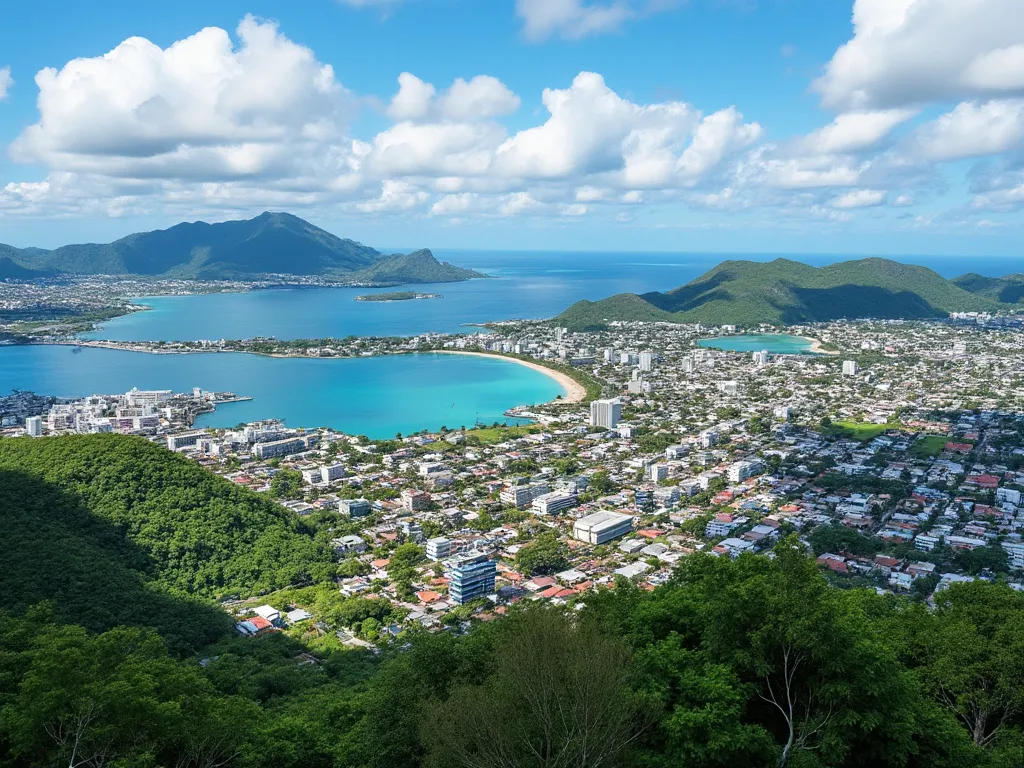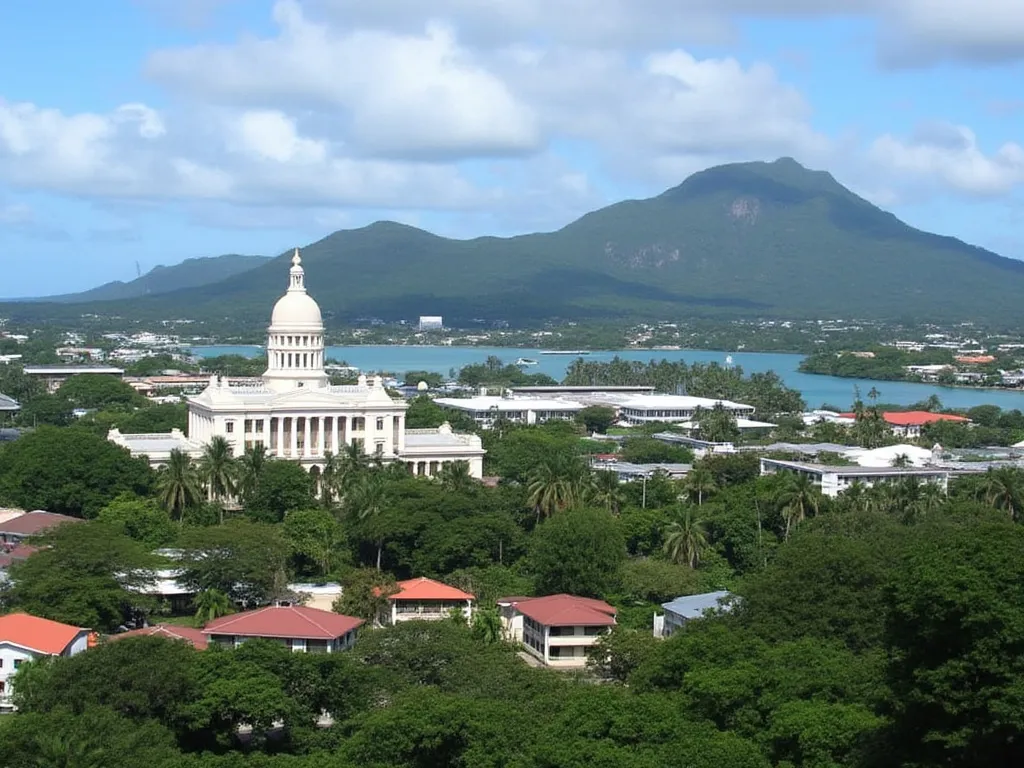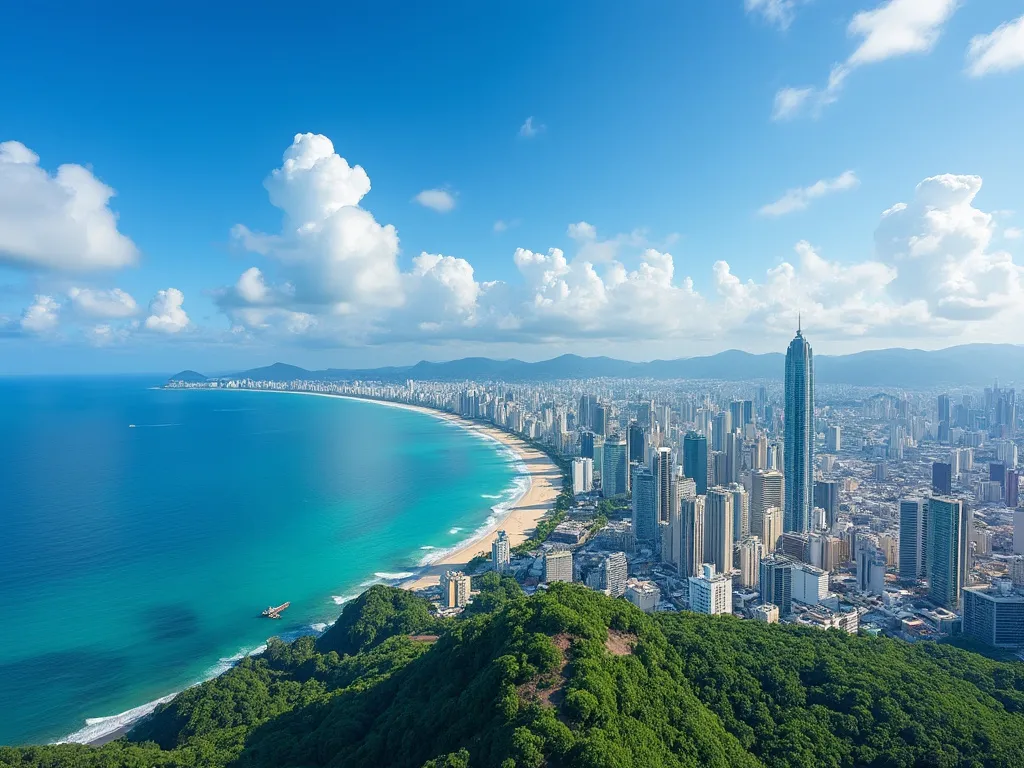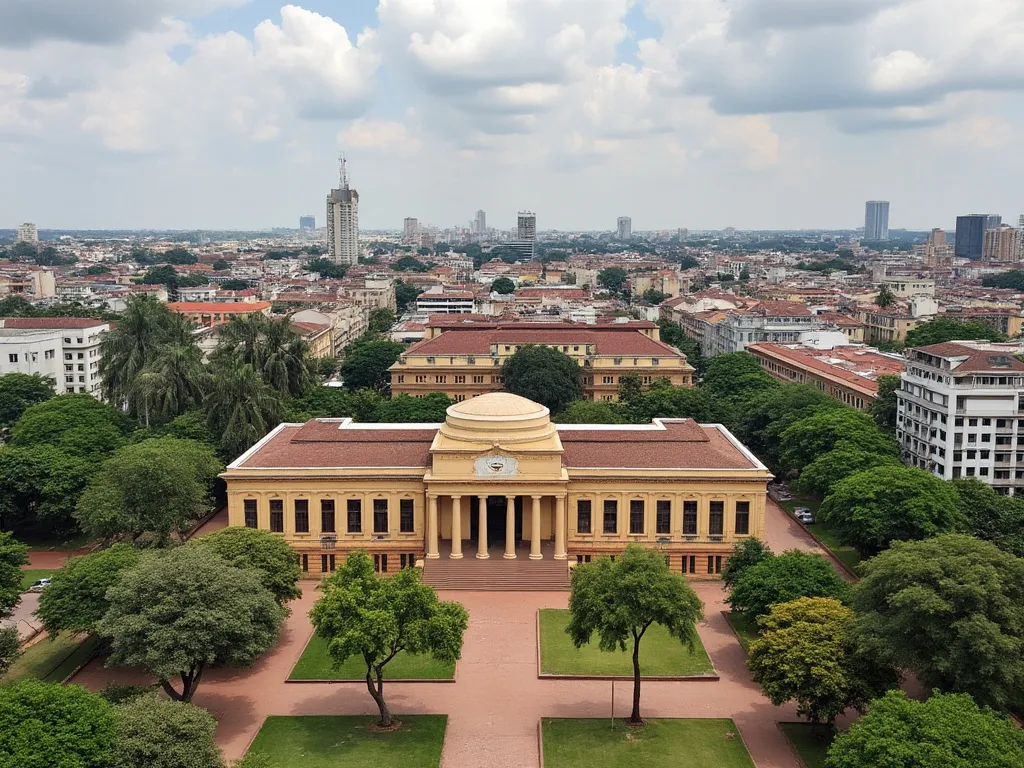
Pago Pago es la capital de Samoa Americana, un territorio de los Estados Unidos ubicado en el océano Pacífico sur. La ciudad está situada en la costa sur de la isla de Tutuila, que es la isla más grande del territorio. Es una ciudad culturalmente rica y diversa, con una mezcla única de influencias samoanas y estadounidenses. La ciudad también alberga muchos eventos y festivales culturales a lo largo del año, incluyendo las celebraciones anuales del Día de la Bandera.
Información sobre Pago Pago
| País | 🇦🇸 Samoa Americana |
| Población de la ciudad | 3,656 (estimación de 2020) |
| Coordenadas de la ciudad | 14.2753° S, 170.7022° O |
| Área de la ciudad | 9.5 km² (3.7 mi²) |
| Clima | Clima de selva tropical |
| Idioma | Inglés, Samoano |
| Moneda | Dólar estadounidense |
| Zona horaria | SST (UTC-11) |
| Proximidad a otras ciudades importantes | Apia, Samoa (130 km/80 mi), Nuku'alofa, Tonga (560 km/348 mi) |
Datos interesantes sobre Pago Pago
- Pago Pago es una de las ciudades más remotas del mundo, con una población de menos de 4,000 personas.
- La ciudad tiene un clima único, con altos niveles de lluvia durante todo el año.
- Pago Pago alberga muchos monumentos históricos, incluyendo la Antigua Estación Naval y el Museo Jean P. Haydon.
- La ciudad alberga muchos eventos y festivales culturales a lo largo del año, incluyendo las celebraciones anuales del Día de la Bandera.
Atracciones turísticas en Pago Pago
- La Antigua Estación Naval: Una histórica estación naval que data de finales del siglo XIX.
- El Museo Jean P. Haydon: Un museo que muestra la historia y cultura de Samoa Americana.
- El Puerto de Pago Pago: Un hermoso y histórico puerto que alberga muchos barcos y naves.
- El Parque Nacional de Samoa Americana: Un parque nacional que cubre más de 13,000 acres de tierra y mar.
Antecedentes históricos de Pago Pago
Pago Pago tiene una rica historia que se remonta a principios del siglo XIX, cuando era un importante centro comercial para las Islas Samoa. La ciudad era una parada importante para balleneros y comerciantes, y su puerto era un lugar popular para que los barcos se reabastecieran. En 1872, los Estados Unidos establecieron una estación naval en Pago Pago, lo que marcó el comienzo de la influencia estadounidense en la región.
Ubicación geográfica de Pago Pago
Pago Pago está situada en un puerto natural en la costa sur de Tutuila, rodeada de montañas escarpadas y una costa escénica. La ciudad está enclavada en un valle, lo que proporciona una protección natural contra el mar y crea un microclima único. El puerto es uno de los mejores del Pacífico, proporcionando un anclaje seguro para barcos y naves.
Significado cultural de Pago Pago
Pago Pago es una ciudad culturalmente rica y diversa, con una mezcla única de influencias samoanas y estadounidenses. La ciudad alberga muchos monumentos históricos, incluyendo la Antigua Estación Naval, que data de finales del siglo XIX. La ciudad también alberga muchos eventos y festivales culturales a lo largo del año, incluyendo las celebraciones anuales del Día de la Bandera.
Importancia económica de Pago Pago
Pago Pago es el centro económico de Samoa Americana, con una economía diversa basada en la pesca, el turismo y la manufactura. La ciudad alberga muchas empresas, incluyendo conserveras de atún, que son un importante empleador en el territorio. El puerto de la ciudad también es un importante centro de envío y comercio.
Conclusión sobre Pago Pago
En conclusión, Pago Pago es una ciudad única y fascinante que ofrece una mezcla de culturas samoanas y estadounidenses. Desde su rica historia hasta su impresionante belleza natural, Pago Pago es una ciudad que tiene algo que ofrecer para todos.
 Palikir
Palikir
 Ciudad de Panamá
Ciudad de Panamá
 Ottawa
Ottawa
 Uagadugú
Uagadugú